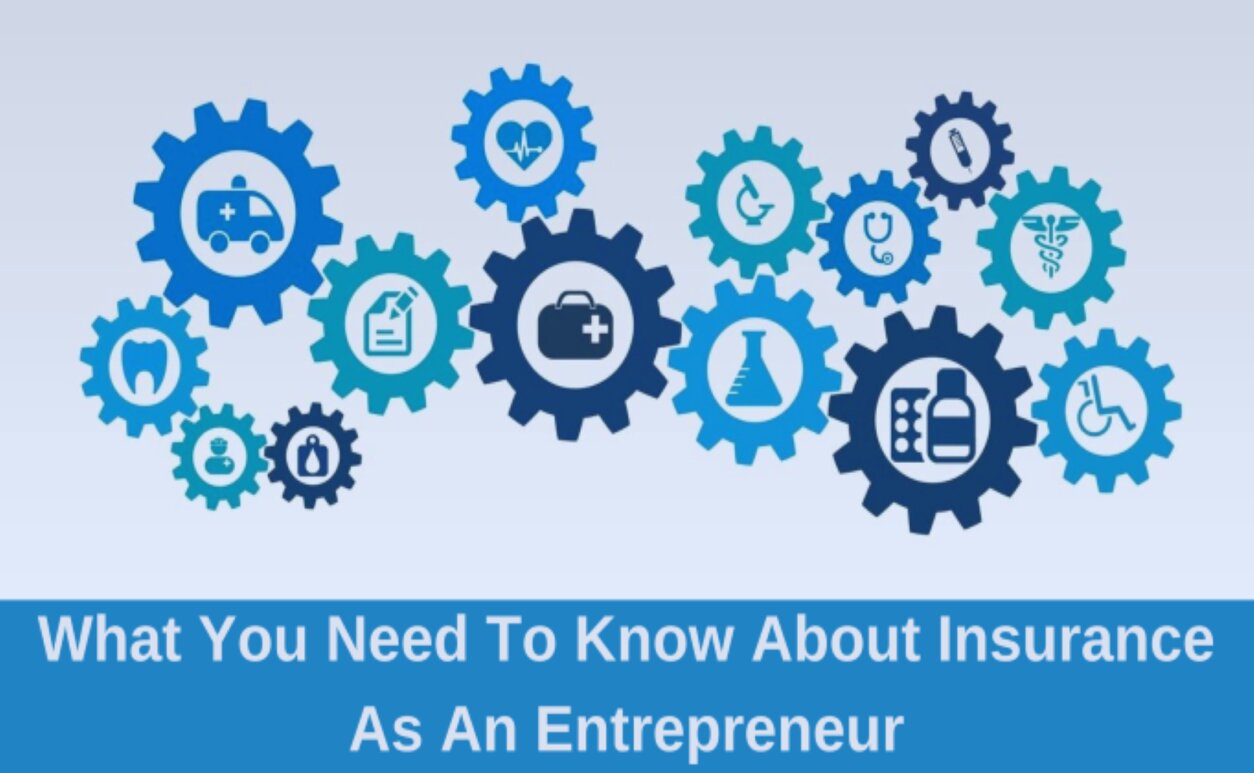Buying out an insurance policy may appear expensive, time-consuming, and complicated. However, you’ll appreciate the coverage if life throws some random catastrophe at you.
Whether it’s health, auto, life, or property insurance, businesses need insurance to cover the expenses associated with property damage, accidents, and liability claims.
Without insurance, you may have out-of-pocket expenses for costly damages. Depending on the occurrence, it can be devastating for entrepreneurs.
In some states, businesses must have specific types of insurance coverage for their businesses. This discussion explores what you need to know about insurance as an entrepreneur. Read on.
Know The Different Types of Insurance Policies For Entrepreneurs
Every business person’s needs are varied. So, it’d be best to research and know the different types of insurance policies available.
Every coverage is essential; however, you can put down a list starting with the high-priority options.
Nonetheless, you can still find comprehensive coverages that offer protection against multiple risks.
1. General Liability Insurance
The general liability cover is also known as commercial liability insurance, and as the name suggests, it covers liability claims against the business.
Notably, a business is not an island and interacts with third parties such as customers, suppliers, the general public, and even employees.
Suppose a customer trips and injures themself in your store due to a slippery floor; they may file a lawsuit against your business.
If found at fault, you could pay damages such as their health costs and loss of income for the time they’re recuperating.
Additionally, an employee may demand workers’ compensation if they get injured at work.
Before you get to that point, you need to consider a general liability cover that will pay for such costs in the future.
2. Business Income Insurance
Let’s face it! Businesses exist to make money, and as an entrepreneur, your main objective is to maximize your revenues while keeping costs low.
Business income insurance is a must-have for all entrepreneurs. Without a doubt, danger looms everywhere, and as a business, you want to be sure you can recover your losses if a disaster strikes.
This policy covers your business for losses incurred after a disaster such as fire, flood, or theft. It also helps compensate for lost income if the business operations are interrupted due to disaster.
Therefore, you can continue paying bills such as payroll and utilities even during a temporary suspension of business.
For example, a fire may extensively damage your premises, causing you to close it down for renovations.
Business income insurance steps in to cover the lost income during this period.
Some states may require businesses to have compulsory insurance covers for their employees. These include;
- Worker’s compensation insurance offers employees financial support if they can’t work due to job-related injuries or illness.
For instance, if your staff injures their back while lifting heavy equipment, the workers’ compensation insurance will cover medical costs.
- Additionally, unemployment insurance benefits employees who can no longer work because of redundancy.
3. Life Insurance
People run businesses; therefore, a life insurance policy offers coverage for your life.
There are two types of life insurance coverages for an entrepreneur available. First, term life insurance provides coverage for a specific time such that you’ll not be compensated if you outlive the coverage period.
On the other hand, permanent life insurance doesn’t have a specific period and offers your loved one or beneficiaries a death benefit in case of your demise. It also has a savings component or what is popularly known as the cash value that earns interest during the coverage period.
Even though the premiums for permanent life insurance may be higher than that of a term life insurance policy, the savings element of it is a plus that can benefit an entrepreneur.
Besides the cover, optional riders are available under permanent life insurance. However, these depend on the insurance company.
Examples of riders include premium waivers in case of a disability and last expense insurance coverage.
In simpler terms, the final expense of life insurance explained means paying for burial expenses and lifting the final rites costs off the shoulders of your loved ones.
4. Auto Insurance
Whether personal or business, your car requires an insurance policy to cover against accidents or theft. Most states require all vehicles to have a running insurance policy due to the risks exposed to car drivers and third parties.
Most insurance companies offer comprehensive liability coverages to cover expenses such as medical bills, property repairs, car theft, vandalism, and damage due to natural disasters.
5. Homeowners Insurance
Even as you run your business, you have a home to go to every day. Also, you have a family, personal properties, and pets to protect.
Homeowners insurance is vital because it protects your property against damage from calamities such as wind, tornadoes, storms, and earthquakes.
It also offers coverage against theft of personal and valuable items in the house and extends to protect the home against fire.
6. Health Insurance
Health insurance encompasses costs incurred during a doctor’s visit, laboratory tests, X-rays, hospitalization, and prescriptions.
Health insurance is a broad subject, and your selection depends on factors such as health status, income levels, age, location, and insurer.
Besides, some policies such as Medicare Parts A, B, C, and D are affordable for most people who meet the eligibility requirements.
Before you take out health insurance, discuss it with your financial advisor or insurance agent.
Notably, health insurance also extends to your employees, and if you have a large business, you can consider corporate products that promise massive discounts.
Know The Different Terms Of Insurance
Throughout the application process, you’ll be bombarded with different terminologies regarding insurance.
Here are some of the common terms you’ll come across.
1. Premiums
You must pay an insurance premium to keep your policy running. Premiums are payable yearly, monthly, quarterly, or semi-annually, depending on the nature of your contract.
At the end of the year, you may choose to renew it or seek another provider. However, automatic renewals are not recommended because they don’t give you a chance to compare different providers’ products.
You may be paying a lot of money if you don’t shop around.
2. Deductibles
There’s no difference between deductibles and out-of-pockets because these are costs you must pay when you file a claim.
Premiums and deductibles are co-related because if you pay higher monthly premiums, the deductible amount will be low. But on the other hand, lower premiums result in higher out-of-pocket expenses.
Most entrepreneurs may be tempted to opt for low premiums to cut costs. However, you may pay more to cover the compensation if a disaster occurs.
The best thing is to balance and try other ways to lower your premiums, such as
- Installing anti-theft locks
- Taking steps to ensure employees and other business contacts are safe within your premises
- Installing fire safety equipment
3. Cash Value
The cash value is the saving component of a permanent life insurance policy. It provides a living benefit to the insured from which you can draw funds.
Conclusion
An entrepreneur has multiple goals to keep the business running and ensure it exists in the future. Having insurance is one way to protect yourself and your business from possible risks.
The insurance subject is broad, and as an entrepreneur, it’s vital to explore all the available options before deciding on your preferred pick.








